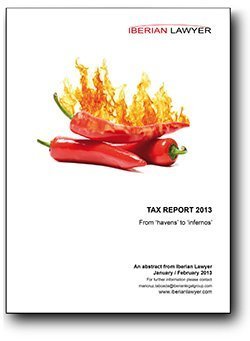Lisbon firms adapting to a difficult 2013
The Government may be progressing its austerity programme and the sale of state assets, but for many firms, domestic activity alone is no longer enough to sustain them.
Nearly two years on from a €78bn European Union (EU) bailout and the outlook for the Portuguese economy looks as challenging as ever, say lawyers. Some, however, do see pockets of optimism emerging over the coming year.
Since the first EU funds were committed in May 2011, unemployment in Portugal has risen from 12.1 percent to 16.2 percent, while successive tax reforms have seen rates rise 30 percent. The economy continues to contract, the Government is facing strong opposition to new tax rises and there is now talk of a renegotiation of its bail-out terms.
“Next year will be incredibly challenging for law firms,” says Lino Torgal, who recently took over as Managing Partner of Sérvulo & Associados. “There is greater pressure on the economy to show the first signs of recovery but liquidity will hopefully increase in the financial system and start to flow again to companies.”
December notably saw the scheduled privatisation of national airline TAP (advised by Vieira de Almeida) postponed after the sole bidder failed to provide the necessary financial guarantees.
The Government had agreed a deal that would have seen Brazil’s Synergy Aerospace pay €35m cash, invest €316m in the company and take on the airline’s estimated €1.2bn debt.
More positive was the sale of the airports operator ANA (advised by PLMJ) to French group Vinci (advised by CMS Rui Pena & Arnaut) for €3.08bn – a price significantly higher than the Government’s target €2.5bn. Vinci beat three other bidders, including Argentina’s Corporacion America, which was advised by Sérvulo.
But while further privatisations are planned for 2013, some suggest that such mandates, despite their high profile, are proving much less attractive to law firms than they once did. Scheduled for sale is the national mail company CTT, waste treatment operator EGF, the national rail cargo operator, and potentially one of state broadcaster RTP’s two main channels.
“In the past, a major privatisation would generate sufficient fees to keep a firm busy and healthy for months,” says Rui Amendoeira, Managing Partner of Miranda Correia Amendoeira. “But in the current climate the Government is scrutinising all costs and legal fees are no exception – the result is that even the most challenging of these sales is generating alarmingly low revenues for firms, covering overheads for weeks at best.”
With corporate deal activity predicted to remain depressed, firms are looking to broaden their service offerings to capitalise on more in-demand needs and locations, they say. Labour and employment and restructuring demands remain buoyant, as does litigation.
“We see our domestic clients placing an even greater squeeze on our rates, across almost all areas of operation,” says Miguel Teixeira de Abreu, Co-Head of Tax at Abreu Advogados. “Nonetheless, there are areas of activity in which we are seeing double-digit growth, including mass litigation on behalf of financial institutions, and for semi-legal services like certification, notarial services and demand for our paralegals.”
But the shrinking domestic economy is also pushing firms to look beyond Portugal for opportunities, for existing and new clients. The European-wide restructuring of multinationals provides a trickle of ongoing demand, while the success of recent Government bond issues provides a glint of optimism, say finance lawyers.
However, it is inevitably towards Lusophone Africa and Brazil that many firms are now focused, albeit others are looking even further to Francophone Africa, where Miranda notably recently opened in the Democratic Republic of Congo. MLGTS has also now concluded a Mozambique addition to its international Legal Circle.
“On a recent trip to Luanda, it caught my attention to see in the same hotel lobby at the same time a group of senior lawyers from a number of Lisbon’s leading firms,” says Amendoeira. “It is perfect representation of the pressures now facing many of the large firms”.
Portuguese firms may see continuing challenges ahead, but new opportunities are also opening up at home and abroad but only for those able to adapt. 2013 may yet prove lucky for some.











